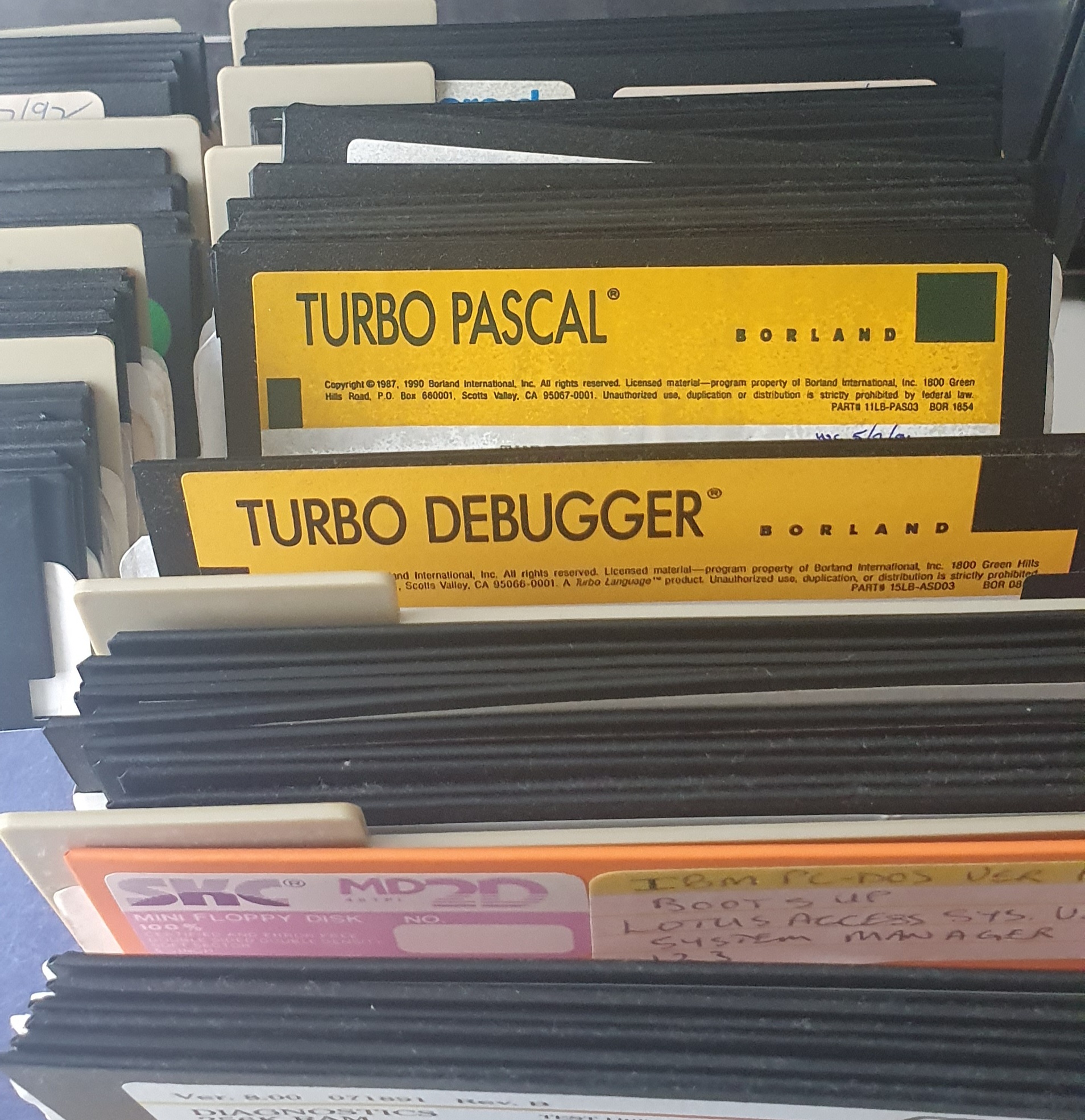November 28, 2023 - Turbo Pascal turns 40
Turbo Pascal was introduced by Borland in November 1983. It’s officially turning 40 years old this month.
Turbo Pascal was a milestone product for the industry, it started Borland as a company and it was the first popular Integrated Development Environment or IDE. It was a great product for the time, and its success was incredible.
You can read more about Turbo Pascal it in this recent blog post from David I, but also on Wikipedia and many other sources including blog posts of mine, including the talk I did this summer in the first Pascal World Congress in Salamanca.
At Embarcadero, the company continuing working on the successors of Turbo Pascal, we just shipped version 36 of that compiler. In fact when you read “Embarcadero Delphi for Win32 compiler version 36.0” (the version of the command line compiler in Delphi 12 Athens) the compiler version number, 36, dates back to the first Turbo Pascal. Not only that, we decided to dedicate the product Easter Egg to this great anniversary.
Found an old turbo pascal floppy tucked away.

I was just reminiscing with my colleagues - a whole bunch of us started with Pascal (and maybe a little LOGO) :)
I’ve got no idea what it does to be honest.
Happy birthday! He did a great job in “The Mandalorian”!
Happy? No no no. The use of := should die a horrible death. I… I may have some PTSD from my time in college.
I love the := assignment operator lmao
We should add colons to everything!
Well, it was less error-prone than some other language’s “if (c=5) { … }”, and more mathematically correct (or so they say)!
Perl at 35:
Well, at least there are people who still use Perl.
Touche.
I remember being forced to learn this in university.
I started CS from the POV of someone with several commercial projects under the belt and at the time being fluent already in five or six different programming languages. But the university where I started had had an issue - they had been way to theoretical (imagine people writing their CS thesis on a mechanical typewriter, and professors telling us that one does not need computer access for mastering CS!). So they had been more or less forced to include at least a bit of real world stuff into their blackboard and paper world. Which resulted in a no-excuse-mandatory beginners course in Turbo Pascal in the first year and Turbo Prolog in the second.
And I was not alone. It was painful. They showed a programming task to be done on the overhead projector, and about 90% of us could have just typed down the answer without thinking and be done with the weekly assignment in five minutes. Nope. Instead, we had to follow (and join) a lengthy, boring, and worthless discussion about the very basics of programming, before we were allowed to work on it. And woe to us if we did not follow the precise path that we had been “taught” in that lesson, even if it was done in a way that no normal programmer would ever implement it.
If they had given us all the assignments for the semester in one go, we would probably had finished them in one afternoon, including documentation and time to spare.
At least with Turbo Prolog we learned something new. First and foremost that there are strong reasons that nobody uses Prolog for serious programming.
Pedro’s younger brother?
No, a distant relative of German boxer Conrad Turbo.

I was thinking this…
I never did get the ‘Turbo’ part. Why not Supercharger Pascal?
I see you are a programmer.
Anything was better than Fortran or cobol back then 🫤
I remember pretty well using TurboPascal 3.0 on my Amstrad CPC6128, Z80 and 128K RAM, and CPM+






